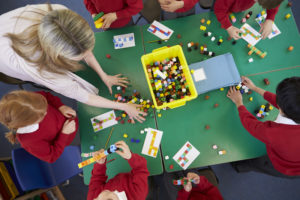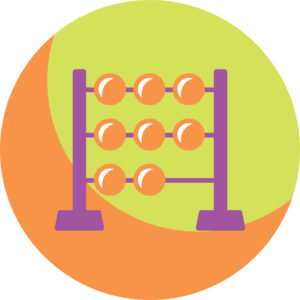 Recently I have had a spate of year seven students who are suffering extreme anxiety and are obsessively worried about getting assignments done, homework up to date and studying for what seems to be a never ending round of tests!
Recently I have had a spate of year seven students who are suffering extreme anxiety and are obsessively worried about getting assignments done, homework up to date and studying for what seems to be a never ending round of tests!
The problem as I see it, is that while it does benefit children of year 7 age to have specialist teachers and to begin learning subjects in greater depth; these kids ARE still kids and do not all cope well with the pressures of high-school life.
I know there are many primary teachers employed in highschools to help the transition to be smooth and this is GREAT but the kids I am seeing are being treated like year 8 kids and-
- are expected to do at least 2 hours homework each night
- forget where the toilets are
- are terrified of the “big kids” and suffer lots of teasing and bullying
- have to carry around all their books and files on their backs like human snails because they can’t find their lockers or want to have EVERYTHING with them in case they’ve forgotten something and so on!
They are not being nurtured and helped to cope and in many cases schools are not paying enough attention to the needs of these younger students.
The transition should be made as seamless as possible but these children who were only just coping at primary school are now absolutely sure they are failures! How sad!
Whether or not there are sufficient staff or funds, schools CAN-
- Be kind and welcoming to all their kids and ensure ALL teaching and non-teaching staff are aware of potential problems that might occur for these younger children.
- Ensure teachers from different subject areas have an effective communication system in place so that kids do not have too many assignments to do each evening
- Be very aware that children in year 7 may have more need for home-room contact and access to counselling
- Understand All year 7 children need regular help to develop the positive growth and mindset skills that will help them with their studies and high-school life.
This IS serious. These kids are not just presenting with academic issues. These difficulties can lead to potentially very serious mental health problems.
We all need to think back to our own childhoods and remember that daunting, terrifying day we went to high-school.
I remember the year 12s at Albany high-school looked like GIANTS.
I can still recall the smell of donuts cooking in the school canteen but being terrified of lining up with the giants to buy one! It all sounds funny and silly now but at the time was TERRIFYING!
Taking our year 7 students to highschool was never going to be easy- let’s use our emotional intelligence and just plain commonsense to ensure we don’t shred their self-confidence and kill their enthusiasm and enjoyment of education!
Please call me on 92777596 or 0409911135 or email me on victoriacarlton@iinet.net.au if you would like extra help for your child.
Here is some extra information and interesting thoughts on successful transition to highschool.
http://https://www.news.com.au/national/nsw-act/year-7-students-suffering-high-school-anxiety-need-help/news-story/bdc611cee79fe033cab7f0a8b6939394
http://https://www.tes.com/news/children-struggle-year-7-no-one-secondary-knows-child-well-we-do-primary





